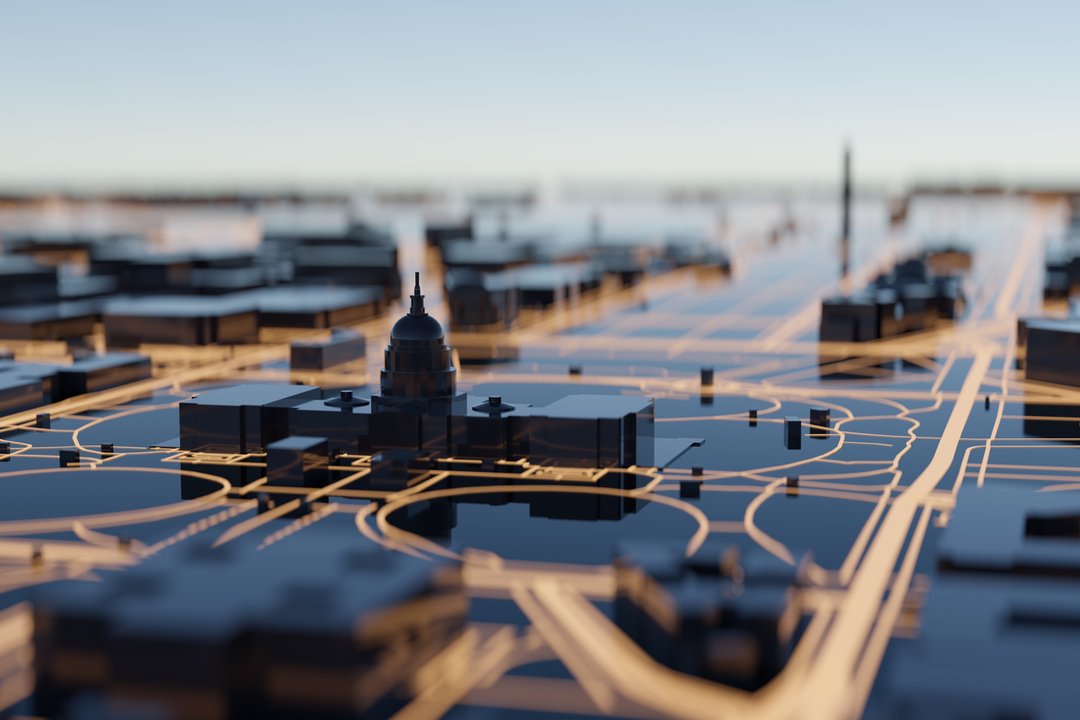
By Andrew Duehren
Sept. 25, 2023
WASHINGTON—Congress is running short on time to pass new spending legislation. If Republicans and Democrats don’t reach a deal before Oct. 1, much of the federal government will have to shut down.
Here is why that might happen—and what it would mean for Americans.

iStock image
Why might the government shut down?
Congress has to pass new legislation to fund the government every fiscal year. Democrats and Republicans don’t have a deal for a full-year spending package, so House Speaker Kevin McCarthy (R., Calif) proposed a short-term extension through October to allow more time for negotiations.
But a small group of House Republicans blocked that. They have opposed a stopgap bill, seeking deep spending cuts and limits on aid to Ukraine, among other demands. McCarthy can lose only four Republican votes to pass legislation without having to rely on Democratic support. Asking the other party to help him pass legislation could threaten his speakership.
Because House Republicans face such deep internal divisions, many in Washington expect lawmakers won’t meet the deadline to keep the government open next weekend.
What happens then?
Without funding from Congress, the head of the White House Office of Management and Budget would send a directive across the federal government: Begin shutting down.
Uniformed members of the military and law enforcement would stay on the job, the White House has said. At some agencies, such as the Department of Homeland Security, many employees would likely continue reporting to work, while most workers at the Department of Commerce, for example, would be told to go home, according to shutdown plans the agencies have released in the past.
These plans can change, though, and the White House has relatively broad discretion to call people into work or send them home.
Whether they are at work or on furlough, none of the roughly 4.5 million people on the federal payroll get paid during a shutdown. Under a law passed in 2019, they receive back pay for any missed paychecks once the government opens again.
What does that mean for me? Will I still get my mail?
At first, many Americans might not notice much difference. Many essential government services continue during shutdowns. Payments on Treasury debt would be made. Social Security checks would be delivered. So would the mail.
Other routine government operations—such as inspecting some food or approving loans to small businesses—could temporarily stop.
What if I am traveling?
Travel wouldn’t be stopped, but you could face slowdowns or disruptions.
During a government shutdown in 2019, many employees at the Transportation Security Administration stopped showing up for work after they missed paychecks. That created longer waits at airports around the country. When a handful of air-traffic controllers called in sick at certain facilities, it created a bottleneck with air traffic. The shutdown ended soon thereafter.
Rich Santa, the controllers’ union president, warned that even a brief shutdown could significantly set back efforts to train new controllers and increase staffing levels.
Most employees in U.S. Customs and Border Protection, which clears people to enter the U.S., would still be expected at work, according to a shutdown plan the agency released in 2022.
What if I want to visit a national park or a Smithsonian museum?
If a shutdown lasts more than a few days, many national parks and museums would likely close or curtail operations. The specifics could depend on the park and how the Biden administration approaches the shutdown.
Will I still have to make student-loan payments?
Yes.
The beginning of a government shutdown could coincide with the restart of federal student loan payments in the U.S. on Oct. 1. But borrowers will still have to make payments to their loan service providers.
How could this impact the economy?
Government spending makes up about a quarter of U.S. gross domestic product, so a sudden slowdown in that spending can have tangible economic consequences, especially if it goes on for several weeks.
Analysts at Goldman Sachs expect a shutdown would shave 0.2 percentage points off annualized GDP growth every week. After a five-week partial shutdown in 2019, the Congressional Budget Office estimated roughly $11 billion in economic activity was lost, saying $3 billion of that wouldn’t be recovered. That year, some agencies had already gotten funding and didn’t have to hit pause.
A shutdown this year could cause a deeper loss because it would apply to more federal agencies. The economy is already facing uncertainty this fall with high interest rates, an autoworkers’ strike and the resumption of federal student loan payments.
Federal workers and contractors could face the most serious consequences. In 2019, some civil servants had trouble paying their bills. Companies that contract for the federal government missed invoices or were shut out of government buildings. Unlike federal employees, contractors aren’t guaranteed back pay for missed work during a shutdown.
If a shutdown dragged on long enough, it could be complicated to figure out its impact on the economy because the agencies that publish the data wouldn’t collect or release it while the government is closed.
Write to Andrew Duehren at andrew.duehren@wsj.com
Dow Jones & Company, Inc.



